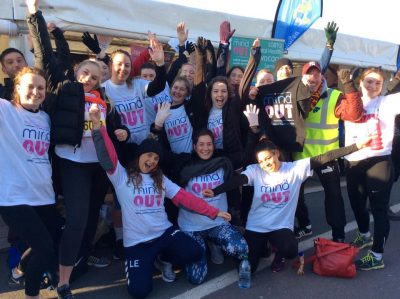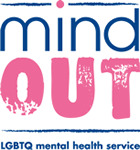
It’s Mental Health Awareness Week 14th-20th May. This year’s theme is stress. At MindOut we wanted to explore what stress is like for LGBTQ people, so this week we are asking What is minority stress?
Being a member of a marginalized group requires extra effort. When you’re the only LGBTQ identified person in your team at work, you have to think on a level that members of the majority don’t. The awareness of being different, and past experiences of discrimination or bullying, can cause internalized shame and anxiety. People often struggle with social validation and are constantly scanning social or work situations where they may not fit in. Even if you don’t experience overt stigma, the expectation of it generates stress which takes its toll on mental health over time. Not to mention having to ‘come-out’ to people every time you encounter a new situation.
Being invisible
Young (and older) LGBTQ people especially may feel they need to conceal their true identities and being ‘invisible’ or ‘unknown’ can also be a huge stressor leading to isolation. It is well known that many young people who have come out as teenagers go promptly back into the closet once they join the workplace. Similarly many LGBTQ people are not out when they seek services for their health needs. It is worth considering the number of LGBTQ people not ‘out’ at work or in social situations – or older people not out when trying to get access to the care they need as they age.
We do it to ourselves
Minority stress can also occur within LGBTQ communities – we discriminate against each other, often unintentionally. For instance, through image conscious ‘preferences’ evident in dating apps, ageism and prejudice towards bi and trans and/or nonbinary people.
But resilience springs from being connected to our communities
Although we know that minority stress contributes to real health disparities for LGBTQ people it can also be a source of strength and resilience when LGBTQ people come together, talk about these issues, engage in activism or join spaces where they can share experiences and support each other. Positive community connectedness can really go a long way to breaking through chronic isolation, loneliness and suicidal thoughts and feelings. MindOut works hard in the community to counter the double whammy of stigma that still exists for LGBTQ people who also experience mental health issues. Talking about our experiences of minority stress is both therapeutic and crucial for changing society’s attitudes towards mental health and ensuring that we look after each other.
